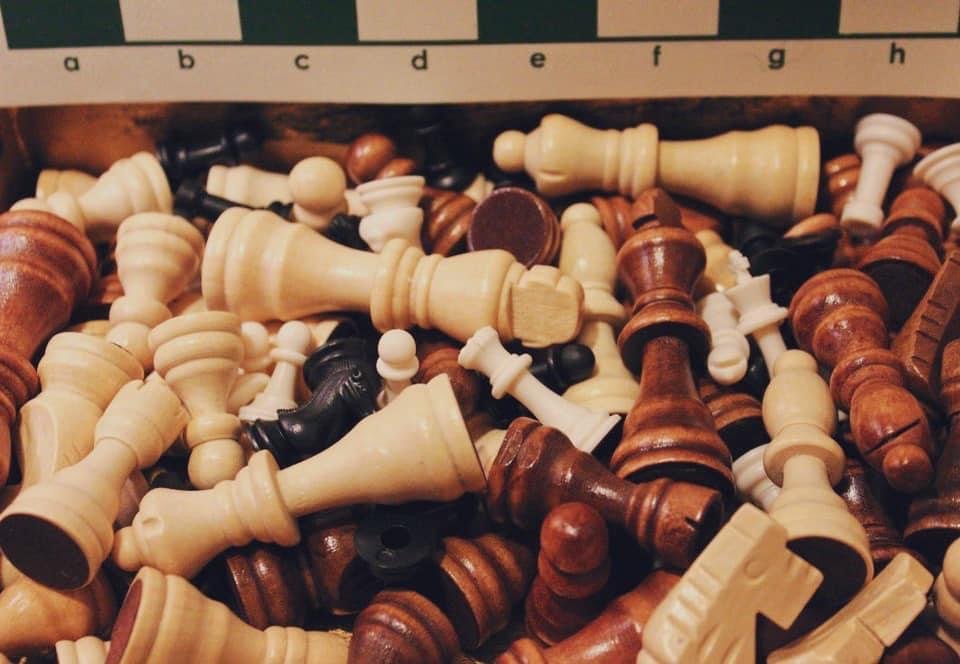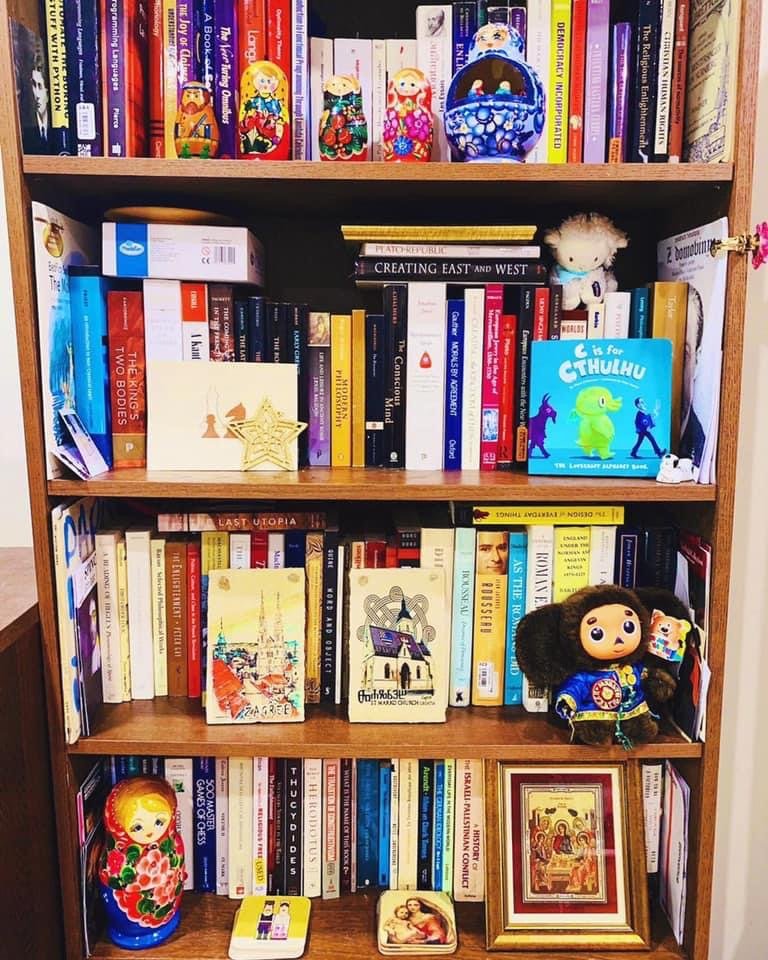About Me
After all — one thing I’ve learned from my years of existence is that we don’t know all that much about ourselves, at least not as much as we think. Self-deception is an unfortunate part of the human experience (as it evolved in order to better deceive others), but an aspect of it I accept and in such acceptance, I claim no truths or knowledge of the world and myself — it’s all tentative in my book (except maybe the rules of logic and mathematics). I was a PhD student in philosophy but academia wasn’t for me, so I left with a masters which bestows me no special privileges or career opportunities, just a piece of paper and the ability to say, “yeah, I have a masters in the most useless subject imaginable”. Philosophy is only useless because earlier in history many areas of study were all encompassed under the broad field of philosophy such as the sciences, psychology, etc. Now that we have sectioned ourselves off into numerous specialized fields and sub fields, philosophy has seemingly lost its purpose in modern society, or a purpose that is somewhat profitable, at least. Philosophy work feels like some act of charity that no one appreciates. Sure, other fields answer important questions better than philosophy does but who asks these questions in the first place?
I don’t believe myself to be special, unique, particularly intelligent, just the successful product of millions of years of evolution (natural and sexual selection). I try to maintain realism in all areas of my life from what I am capable of or my goals and aspirations. However, this most often leads me to underestimate my own abilities, but I try to remind myself, realism also means being realistic about what you’re good at, not just your limitations. I also decorate my room and can be considered a book hoarder (everyone always asks, but I’ve read a bit less than half of my collection which is pretty good because I own thousands ).
I think a lot (I studied philosophy, it’s what I basically did but I have nothing to show for it except interesting topics to discuss at dinner). I can pretty much talk about anything, argue on any side of a debate, but I suppose, I think about certain things more than others (as one does).
I don’t believe in objective morality in the sense that the concepts of “good” and “evil”on a theistic level have any concrete meaning other than what we have assigned it. However, I do think there are standards for behavior (what we refer to as moral) that we all would agree to be good and bad, regardless of culture. Lately, I was thinking about the evolutionary origins of morality (I pretty much analyze almost every aspect of life through this lens) and a friend took a culturally relativist approach which every (intelligent) philosopher should rightfully wince at the very mention of it. Even if I knew the opinion to be absurd, I still had trouble refuting it which led me to think about morality in terms of the behavior of primates. Our non human ancestors have a system of morality if we think of it as a code of conduct. They can understand the concept of “fairness” hence being ripped off will cause them to be angry. Maybe morality can be reduced to what is evolutionarily advantageous, and as animals develop in intellect, they gain greater capacity to understand morality. I say this because species that are less evolved such as certain breeds of birds will often not act in their best interest (such as by killing their offspring which is maladaptive.)
Unfortunately it is difficult to prove morality isn’t a social construct conjured by humans as a method of behavioral regulation and that there is indeed “objective” concepts of morality that exist in the world. As previously stated, I believe that a species’ understanding of morality increases alongside the progress of their evolution — perhaps they coevolved (the development of certain brain functions). I recently read a book that talks about just this titled Primates and Philosophy: How Morality Evolved where Frans de Waal demonstrate precursors to what we would consider “morality”. In Primates and Philosophers, Frans De Waal attempts to analyze the origins of human morality through what we would perceive as moral behavior in our non-human ancestors, chimpanzees and other primates. Evolution is selfish, it causes individuals to take whatever actions that is conducive to their survival and reproduction.
—
I value my friends and family; our stimulating intellectual discussions and enriching emotional connections are truly what makes life worth living. There is nothing more than that and the accumulation of knowledge in search of truth. I read a lot whether it be fiction or non-fiction. I view my own ignorance to my advantage because it provides the first step in learning: as Socrates preached in Ancient Athens, admitting you know nothing and from there, you are more receptive to learning (and are that much closer to the truth). I am not sure what I believe about Truth (with a uppercase T), which is the reason I am hesitant about using it. What I do believe firmly is the Truth of mathematics. I don’t know whether I would take a strictly Platonist stance on the subject (there’s also an interesting academic debate that Plato wasn’t a mathematical Platonist after all!), but I do see its Truth as part of objective reality. Mathematics (if we view it as its rules and its structure rather than the mathematical objects it contains), contrary to Kant, is analytic a priori, and there’s nothing you can do to convince me otherwise (except provide a convincing logically grounded argument).
There’s no other truth I take as self-evident, not even the fact that I exist or think. I don’t care what a person’s political or religious beliefs are or anything that would lead some to call a person “bad” or “immoral”. All that concerns me is that they are honest and kind (kind to me, at least). I don’t like emotionally charged political discussions because they are usually counter-productive, as most often people make up their mind on an issue by reasons unknown to their conscious psyche, and rationalize later what they believe. Even I am susceptible to being a flawed human being, subject to self-deception, perhaps selfish motives parading itself as altruistic. What I hate most is virtue signaling — I believe being effectively altruistic is more beneficial to the third world, rather than flying to Africa yourself, providing no useful skills but your own presence to make poor African kids feel good for the two weeks you’re there. It’s actually morally despicable if you think about it in terms of the large costs accrued, only to be left with such short term temporary gains. I stated earlier that I don’t judge, but I’ll revise that statement to, “I don’t judge you if you are honest and open about your intentions” which includes virtue-signaling because we all know that the main goal gained from that exercise is social approval and feeling that fuzzy wuzzy feeling of a job well done.
—
My favorite books are:
- The Brothers Karamazov and the Idiot by Fyodor Dostoevsky
- Life: A User’s Manual by Georges Perec
- The Magic Mountain and Death in Venice by Thomas Mann
- An invitation to a Beheading by Vladimir Nabokov
- A Sentimental Education by Gustave Flaubert
I’ve read a fair amount in my life. I’ve spent most of my teens to early twenties devouring the classics and basically what you should read if you consider yourself a well-read intellectual. Now, I mainly read non-fiction.
The topics I enjoy reading about the most are: behavioral economics because of its elucidation on the link between human psychology and economic decision making. It’s interesting because we like to think that when making decisions, we are completely rational -- that’s at least what economists or what we call “Homo Economicus” would like us to believe. However, the cognitive processes that goes on in these types of decision making are much more complex. A lot of the time, they are the product of unconscious influences or unsuspecting “nudges” (for the better or worse) that affect how we gather information and which information we deem relevant in making decisions.
I read a ton of evolutionary psychology because I like to learn how our behavior and way of thinking evolved. I think evolutionary psychology better explains a lot of the questions Philosophy has brooded over for centuries. I view a lot of philosophical discussions of morality as essentially being akin to vapor of vapors, as the Bible aptly puts it or just words, words, words in the Shakespearean sense. It has very little explanatory power compared to evolutionary psychology and biology.










Contact us
-
katarina0ishii@gmail.com

